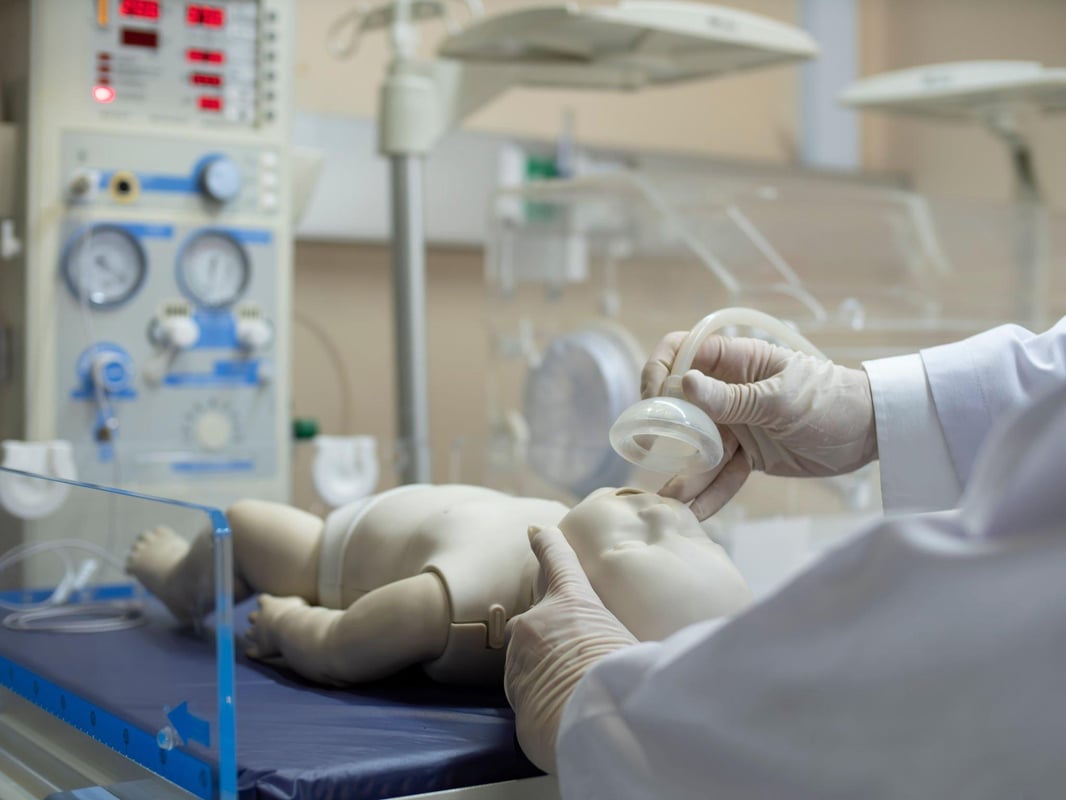
Financial aid (may be available)

Financial aid (may be available)

Financial aid (may be available)

Financial aid (may be available)
$276 total
$2,075 total
$270 total
$410 total
$365 total
$150 total
No cost info
$285 total
$150 total
No cost info
Seeking Pediatric Advanced Life Support (PALS) classes in Akron? You're in the right place. It's essential to choose the right program, as your vocational training will guide your future career. This guide will provide you with the information you need to start your journey towards becoming a certified PALS provider.

Pediatric Advanced Life Support (PALS) is a protocol of critical care procedures and skills to help healthcare providers better manage the critically ill pediatric (infant and child) patients. It's a sequence of medical procedures and techniques that are used to save a child's life in the event of a medical emergency. The American Heart Association (AHA) is the certifying body for PALS training.
To start your PALS training, there are a few things you need to consider. Let's take a detailed look at the requirements:
Pre-requisites: You should be a healthcare professional who either directs or participates in the management of respiratory and/or cardiovascular emergencies and cardiopulmonary arrest in pediatric patients. This includes personnel in emergency response, emergency medicine, intensive care and critical care units.
Course: The PALS course includes a series of simulations and skill stations that encourage active participation and learning. The course features realistic scenarios that are likely to occur in an emergency situation.
When you're choosing a PALS class, it's crucial to consider a few factors:
Certification: Ensure the class provides a certification that's recognized by the American Heart Association. This is crucial for your credibility as a healthcare provider.
Practical Training: Look for a class that offers hands-on training. This will help you apply the theoretical knowledge you gain during the course.
A typical day in a PALS class may involve the following:
Theory Lessons: These lessons will cover the basics of Pediatric Advanced Life Support, including identifying and treating life-threatening conditions.
Practical Training: The theory lessons are usually followed by practical training. This helps you apply what you've learned in a real-world scenario.
The PALS certification process involves a sequence of steps:
Complete the Course: Attend all the classes and complete the course requirements.
Pass the Exam: At the end of the course, you'll need to pass an exam to demonstrate your understanding of the material.
Receive Certification: Once you pass the exam, you'll receive your PALS certification.
Once you've obtained your PALS certification, you can look for jobs in various healthcare settings. Some of the roles you could consider include Pediatric Nurse, Pediatric Intensive Care Unit (PICU) Nurse, and Emergency Medical Technician (EMT). The EMT profession can be a great start as it offers a robust foundation in emergency medical care.
After becoming a Pediatric Advanced Life Support provider, you might consider other related courses to broaden your skill set. For instance, becoming an Advanced Cardiac Life Support (ACLS) provider can be beneficial, as it covers the treatment of adult victims of cardiac arrest and other cardiopulmonary emergencies.
PALS training is crucial for healthcare professionals who work with children. It provides the skills needed to identify and treat conditions that may lead to cardiac arrest and to resuscitate pediatric patients who experience cardiac arrest.
PALS certifications are valid for two years. After this period, you will need to undertake a PALS recertification course to maintain your certification.
Depending on your schedule and learning preference, you can choose between online and in-person PALS classes. Both formats have their advantages and should be selected based on your personal needs.
In addition to PALS, healthcare professionals can benefit from other training courses. For instance, a course on how to become a Respiratory Therapist can be an excellent addition to your qualifications.
Embarking on a PALS training course is a significant step forward in your healthcare career. With the right training and certification, you can make a real difference in the lives of pediatric patients. Whether you are seeking a job in a hospital, a private practice, or any other healthcare setting, this certification will prove invaluable. Remember to explore more related professions like Medical Sonographer which can open up more opportunities in the healthcare field.
Dreambound has written dozens of in-depth guides on how to get started in this field, with information specific to your city. If you're located somewhere else or thinking about moving, check out some other guides we've written:
Contemplating a transition in your career or exploring various professional paths? Dreambound has written many guides to help you in making informed decisions. Here are a few:
Dreambound's platform allows prospective students to find the right educational program for them through searching, filtering, and connecting with our extensive selection of career & technical education partners.
Dreambound has over 70 programs across healthcare, technology, business, and industrial trades. This includes programs such as Medical Billing, Cybersecurity, and welding.
Some of our schools offer financial aid for those who qualify. Many others offer payment plans, where you can pay the cost of class over time.
Yes, Dreambound offers many online programs. On Dreambound's search, you can filter by online, in-person, and hybrid (part online, part in-person).
Dreambound is completely free for you to use! We are supported by schools and organizations who pay to advertise on our website, so we can offer all of our career resources for free.